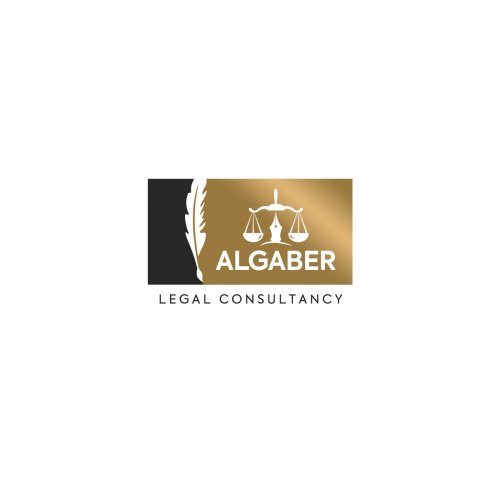Best Work Permit Lawyers in Dubai
Share your needs with us, get contacted by law firms.
Free. Takes 2 min.
List of the best lawyers in Dubai, United Arab Emirates
United Arab Emirates Work Permit Legal Questions answered by Lawyers
Browse our 2 legal questions about Work Permit in United Arab Emirates and read the lawyer answers, or ask your own questions for free.
- Question about deported from Bahrain can apply in Dubai
- Hi I'm Muhammad Usman from Lahore Pakistan I was In Bahrain from 2016 to 2024 December I want to ask that I stay in Bahrain in Bahrain jail now I want to apply for a UAE worker permit so I can apply for UAE work permit in Pakistan or there's... Read more →
-
Lawyer answer by HHS Lawyers And Legal Consultants
Being deported from Bahrain does not automatically prevent you from getting a UAE work permit, but approval depends on the reason for deportation and your security and immigration record. When you may still obtain a UAE work visa - Overstay...
Read full answer - Visa Rejection due to security reason
- I am currently in Abu Dhabi UAE on a visit visa. My company applied for a work permit for me but it was rejected by immigration citing "security reasons". I don't know how to resolve this. I went to Abu Dhabi immigration office but they didn't provide any further information... Read more →
-
Lawyer answer by HHS Lawyers And Legal Consultants
A work permit rejection for "security reasons" in the UAE usually means the application was blocked during background screening by immigration or security authorities. Unfortunately, the exact reason is not disclosed to applicants or employers. Common reasons for security rejections...
Read full answer
About Work Permit Law in Dubai, United Arab Emirates
In Dubai, United Arab Emirates (UAE), it is mandatory for all expatriates to obtain a Work Permit (also known as Labour Card) before starting any form of employment. The Ministry of Human Resources & Emiratisation (MOHRE) is the governmental agency that oversees issuing these permits. Work permits link to an employee's legal and contractual relationship in the UAE, which establishes certain rights and obligations related to salary, leave benefits, and termination.
Why You May Need a Lawyer
Legal assistance can be vital when navigating complex labour laws. Situations where a lawyer's advice may be helpful include dispute resolution with your employer, understanding your rights and benefits under the employment contract, and assisting with work permit renewal, incorporation, or cancellation processes. A lawyer can also represent you before courts and oversee the legal aspects of dispute settlements, employment contracts, and ultimately ensure your compliance with both local and federal labor laws.
Local Laws Overview
In Dubai, work permits are regulated under Federal Law No. 8 of 1980 (commonly known as the UAE Labour Law). The law dictates that all foreigners need a work visa sponsored by an employer to work in the country. It covers several aspects including working hours, salary scales, annual leave, sick leave, maternity leave, end-of-service gratuity, and work-related injuries. Violations of these laws can result in substantial penalties. Remember that the employee-employer relationship is governed by the contract and the UAE Labour Law, which offers broad protection to workers.
Frequently Asked Questions
1. What happens if I work without a valid work permit in Dubai?
Working without a valid work permit in Dubai is considered illegal and can lead to severe penalties, including deportation and a lifetime ban on entering the UAE.
2. Can I work for another employer on my current work permit?
No, the work permit in Dubai is granted to an employee for a specific employer. Any change in the employer requires a new work permit.
3. How long is a work permit valid for?
A work permit in Dubai is usually valid for two years, but can vary depending on the type of visa and nationality of the worker.
4. Who is responsible for obtaining and renewing the work permit?
Typically, it is the responsibility of your employer to obtain and renew your work permit under UAE law.
5. What are the penalties if my employer does not comply with the rules related to work permits?
If an employer fails to comply with UAE work permit laws, they can face penalties including fines, a ban on granting further permits, and potential legal prosecution.
Additional Resources
For further assistance, you may consult the MOHRE, the Dubai Courts, or the Dubai Legal Affairs Department. Each of these entities provides comprehensive resources and information related to work permits in Dubai.
Next Steps
If you require legal assistance regarding your work permit, it's advisable to consult a lawyer familiar with the UAE Labour Law. They can guide you through all legal procedures from processing to dispute resolution. It's essential to understand your rights and obligations as a worker in Dubai and how the local labour laws protect you.
Lawzana helps you find the best lawyers and law firms in Dubai through a curated and pre-screened list of qualified legal professionals. Our platform offers rankings and detailed profiles of attorneys and law firms, allowing you to compare based on practice areas, including Work Permit, experience, and client feedback.
Each profile includes a description of the firm's areas of practice, client reviews, team members and partners, year of establishment, spoken languages, office locations, contact information, social media presence, and any published articles or resources. Most firms on our platform speak English and are experienced in both local and international legal matters.
Get a quote from top-rated law firms in Dubai, United Arab Emirates — quickly, securely, and without unnecessary hassle.
Disclaimer:
The information provided on this page is for general informational purposes only and does not constitute legal advice. While we strive to ensure the accuracy and relevance of the content, legal information may change over time, and interpretations of the law can vary. You should always consult with a qualified legal professional for advice specific to your situation.
We disclaim all liability for actions taken or not taken based on the content of this page. If you believe any information is incorrect or outdated, please contact us, and we will review and update it where appropriate.

















